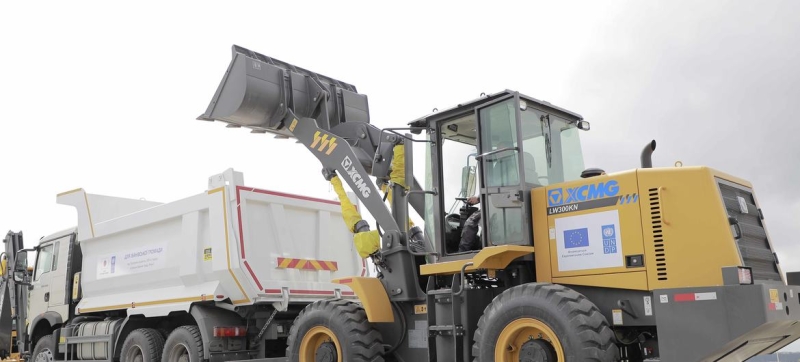
.UNOPS supplied Ukraine with equipment worth more than seven million dollars. UN agencies restore Ukraine’s railways and agricultural sector Peace and Security
Railway communications within Ukraine have been seriously disrupted due to the war. However, with civil aviation largely idle and maritime transport facing numerous challenges, rail transport remains the main mode of cargo delivery throughout the country.
Between December 2023 and June 2024, under the RELINC initiative, the United Nations Office for Project Services (UNOPS) supplied equipment worth more than seven million dollars to Ukrzaliznytsia, the state operator of the railway network Ukraine. The World Bank-funded project aims to restore critical rail service and increase freight capacity.
“The importance of rail transport for Ukraine at this time cannot be overstated,” said UNOPS Regional Director for Europe and Central Asia, Tim Lardner. “It forms the basis of the country’s economy; business, industry and the population depend on it. Railways unite the country and serve as its link to the outside world.”
Equipment supplied to Ukraine includes mobile cranes, excavators, front-end loaders, dump trucks, compressors and concrete mixers. This equipment is critical to repairing damaged railway lines and other infrastructure, as well as ensuring continuity of rail traffic when sending goods to and from Ukraine.
By July 2024, UNOPS will supply Ukraine with an additional $1.5 million worth of equipment, including tractors, bulldozers, concrete mixers and large trucks. In addition, Ukrzaliznytsia will receive 200 new flat cars worth $15 million, which will increase its carrying capacity. These wagons are platforms used to transport shipping containers.
FAO Efforts
Food and Agriculture Organization of the United Nations (FAO) actively supports Ukraine in its efforts to maintain food security. This was stated by the head of the FAO regional program for Europe and Central Asia, Raimund Jehle, at the Conference on the Reconstruction of Ukraine in Berlin. The FAO Emergency Response Plan until 2024 is being implemented jointly with the Ministry of Agricultural Policy and Food of Ukraine, as well as national and international partners, including the European Union.
Jehle noted the “unwavering resilience” of Ukrainian farmers, foresters and fishermen, who he said continue to feed Ukraine and the rest of the world.
FAO activities this year, Jehle said, focused on strengthening Ukraine’s agri-food systems to achieve greater productivity while protecting natural landscapes and carefully managing natural resources.
Ukraine’s food and agricultural sector has suffered significantly as a result of the war. According to the FAO, conflict-related losses and damages to the sector are estimated at $80 billion. About 17.4 million hectares of arable land are contaminated with explosive ordnance and mines. One in four farms in the country has reduced or interrupted agricultural production since 2022.
As Jehle said at the Berlin Ukraine Recovery Conference, FAO is providing multilateral support to the country’s food and agriculture sector, with a particular focus on helping small farmers. The organization provided food to more than 100 thousand rural families in the front-line regions, supported six thousand small and medium-sized farmers in restoring production and ensured the storage of more than six million tons of grain.
Read also:
